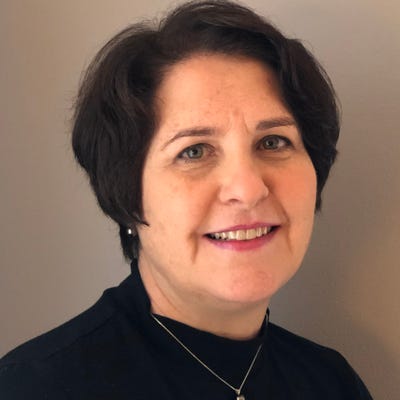Comms APIs: Morgan Stanley's In, Are You?Comms APIs: Morgan Stanley's In, Are You?
Chief digital officer discusses the company's use of Twilio APIs, and the importance of software communications for a digital future.
December 11, 2017

As I've written previously, software is largely considered the future of communications. That puts a spotlight on companies like Twilio, one of the pioneers in enabling communications via APIs. But from a business implementation perspective, we've mostly heard about the digital natives -- Uber being the poster child -- embracing the movement. Established companies? Especially those in technology laggard industries like financial services? Not so much.
That's why it's so refreshing, as well as encouraging, to hear about companies like Morgan Stanley Wealth Management, which as announced this summer has embraced the use of Twilio communications APIs as part of its digital strategy. That's a bold next-generation move for a traditionally technology conservative financial services company -- but perhaps even bolder is its decision to publicize the strategy. Naureen Hassan, chief digital officer at Morgan Stanley Wealth Management, shared the reasons behind both decisions during a customer panel at the analyst day Twilio held last week (see related No Jitter post, "Twilio CEO Talks Up Transformative Power of Software").
Why Use Communications APIs?
To the technology decision itself, text messaging between financial advisors and their clients served as the pain point that ultimately led Morgan Stanley to investigate the use of SMS APIs, Hassan said. By federal regulation, financial services companies are required to record and supervise conversations between financial advisors and their clients. That is relatively straightforward with email -- Morgan Stanley, like its peers, simply retains the emails in massive file stores, searchable as the need arises. "But how do we record what people are doing on their phones [with text messages]?" Disallowing use of text messaging certainly isn't a feasible strategy in this day and age, she noted.
So Morgan Stanley considered two solutions, Hassan said. First it thought about giving each of the company's 16,000 financial advisors his or her own smartphone that the company would own, lock down, and monitor. However, as she pointed out, that would have been a "very expensive proposition," given the costs associated with buying and managing such a large number of phones.
The other idea was to allow financial advisors to add a phone app to the BYOD devices they were using for other purposes, and lock it down using the MobileIron enterprise mobile management system, Hassan said. And this, of course, is the route it took, working in partnership with Twilio. Now financial advisors have access to a Morgan Stanley phone app that rings a work number on their personal phones and allows them to text message with their clients in a way that meets federal requirements for recording and supervising those conversations.
Morgan Stanley did consider providing this solution via a mobile virtual network operator, but Twilio's ability to handle the security architecture and management that comes with serving a "significant financial institution," at global scale, was a key selling point. As was its ease of use and integration via APIs, Hassan said. The Morgan Stanley tech team, working with Twilio, had a proof of concept up and running in four hours -- a good sign that it would be able to get the app into full rollout quickly, she said.
Why Go Public?
Morgan Stanley has been vocal about its digital strategy in part because it feels the press does a disservice to the financial services industry by equating digital disruption to the replacement of human advisors with robo-calling for potential clients. "We wanted to change the dialog," she said.
Automated solutions do have a role to play, especially in helping financial services firms reach underserved market segments in which customers don't have the need for personal guidance, she said. However, she added, the much bigger opportunity is in using digital technology to better serve core customers by allowing financial advisors to communicate with them via new channels and not only in person or by phone.
Morgan Stanley's vision is to turn its 16,000 financial advisors into digital marketers by providing them the same tools you'd typically find a brand marketer using, say, to sell soap -- "the communications tools, the data and analytics, and the intelligence," Hassan said. "If we put [these] in the hands of the 16,000 people who also have relationships in their local communities, we think it's a really powerful way to grow our business."
Naturally Morgan Stanley is investing heavily in developing the data and analytics that leads to deeper market and customer intelligence -- "but it can't just be about data and analytics for the [financial advisors]," she added. "We also need to be able to give them a way to get the messages out, to be able to communicate with clients at scale in the way that clients want to be communicated with in this day and age -- texting, email, video, multimedia -- and expanding beyond where we are today."
Hassan closed the panel discussion with a message for Twilio that's of broad value: "Keep pushing our thinking. Give us new ideas; we're eager for them," she told Lawson. "We're so heads-down in so many things we're trying to do, so bring us new ideas because we're hungry [for them], but it's hard to pick our heads up sometimes and see what else is out there."
At Enterprise Connect, we're committed to helping companies like Morgan Stanley and others as they grapple with understanding the software-based future, how communications APIs might help advance their businesses, and how to get started. The 2018 conference program includes a thought leaders' summit on software communications; how-to breakout sessions such as "Why You Should Embrace the API Movement" and "Building Your UC Developer Community;" and even a hands-on pre-conference mini-hackathon. And no doubt, comms APIs-related demos will be in abundance on the expo floor.
This is your future; join us at Enterprise Connect 2018, March 12 to 15, in Orlando, Fla., and don't miss out on this great learning opportunity. Register now using the code NOJITTER to save an additional $200 off the Advance Rate or get a free Expo Plus pass.
Related posts:
Hacking Communications to Solve Real-World Problems
Follow Beth Schultz and No Jitter on Twitter! @Beth_Schultz
@Beth_Schultz @nojitter
@nojitter






